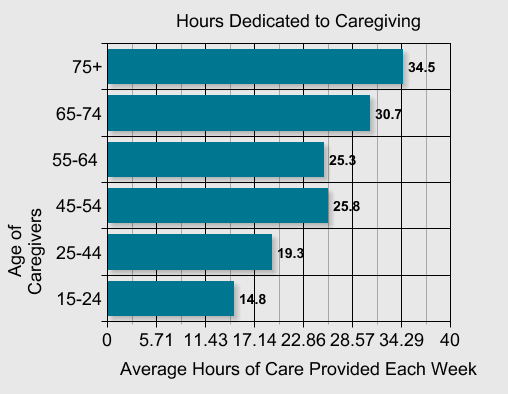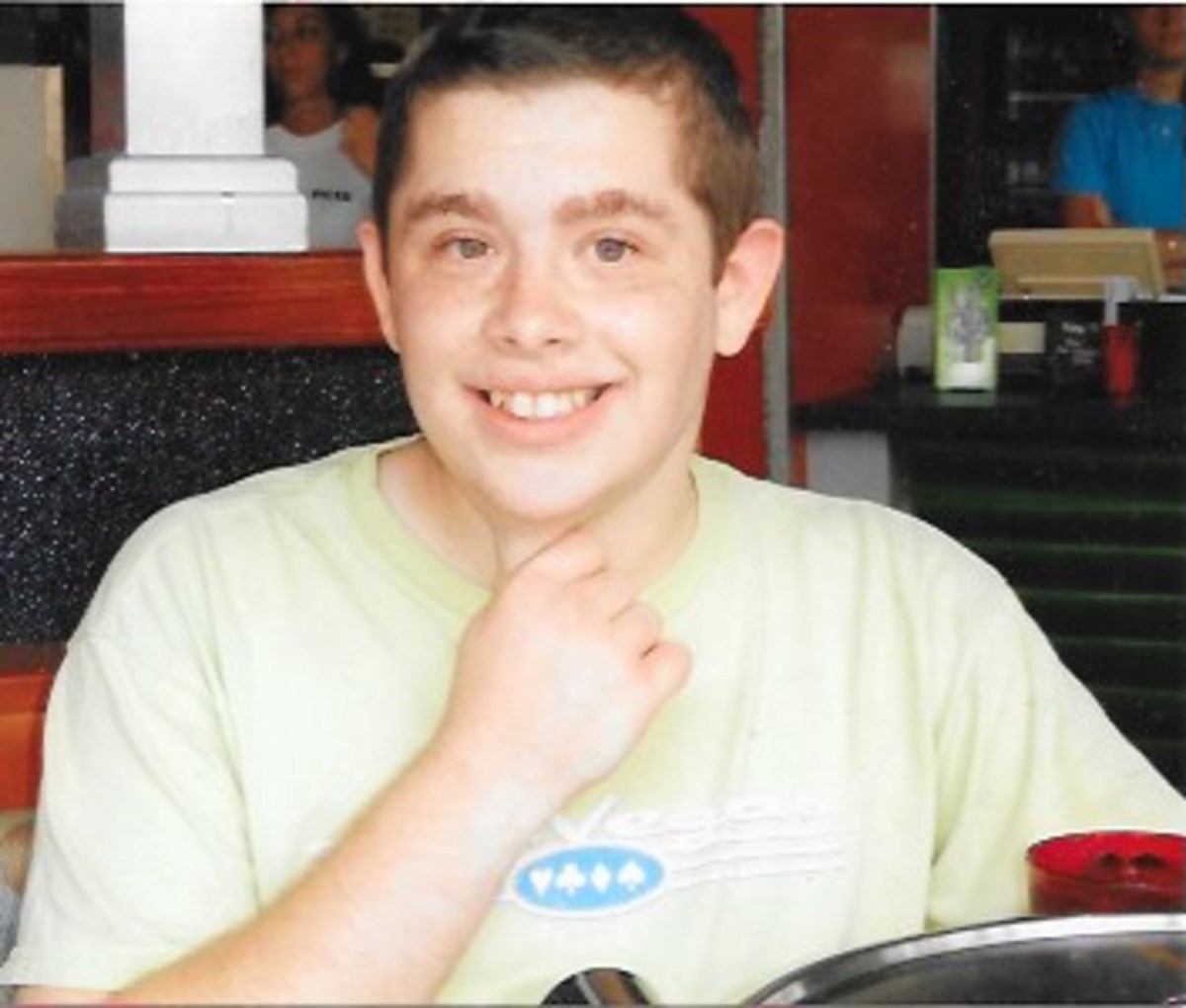- HubPages»
- Health»
- Mental Health»
- Stress Management
The Perils of Caregiver Stress: Coaching Tips for Taking Care of Yourself
Caregiver Stress is Sneaky

Caregiving: Rewarding but Stressful
Although it has its rewards, the stress from caregiving can cause dangerous emotional and physical strain. If you don't take care of yourself, you will not be able to take care of others.
An Informal caregiver is an unpaid person who helps another person with activities of daily living and medical tasks because they are limited, or unable. Whether it be caring for an aging parent, ill child, disabled partner, or friend or relative in need, the stress from caregiving can be harmful and create medical risks. As a caregiver, it is important to take steps to maintain your own well-being.
Many factors contribute to why more and more people are finding themselves caregivers. Changes in healthcare coupled with an increase in the aging population, is resulting in more caregiving by those who are not healthcare professionals.
Number of Hours Dedicated to Caregiving by Age of Family Caregiver

Caregiver Statistics
- According to the National Alliance for Caregiving, along with AARP, there are 65.7 million informal caregivers in the U.S. This means that 29% of the U.S. adult population is providing care to someone who is ill, disabled, or aged. Additionally it is estimated that 52 million caregivers provide care to adults 18+ with disabilities or illness, and 43.5 million care for someone 50+ who has Alzheimer's disease or other dementia.
Caregiver Stress
Caregiver stress is common among caregivers. The high level of responsibility, coupled with the emotional and physical demands, can leave a caregiver running on empty, and neglecting their own needs. Caregivers often feel alone, and many feel they have to do everything by themselves. If you are a caregiver, don't make that mistake. You are not alone. There are many resources and support systems available to help you care for yourself and your loved one, and handle the stress involved.
Caregiver stress often happens outside of ones awareness. In the focus of caring for someone else, stress and signs of depression often flare jeopardizing ones health and well-being. Watch for these signs:
- Decrease in energy and lack of interest in activities once enjoyed
- Feelings of anxiety and irritability
- Changes in sleep patterns (loss of sleep, or sleeping too much)
- Physical changes: fluctuations in weight (gain or loss), hair loss, skin tone changes, uncommon aches and pains that are often abdominal and muscular
- Uncommon mood swings
- Feelings of discontent
Although many people experience these symptoms of stress throughout life based on circumstances, if you are a caregiver experiencing these signs, it is likely that the stress caused from the overwhelming responsibility and concern is a direct factor. Caregiver stress is harmful if not addressed, and increases your risk of developing medical problems.
Rate Yourself
How would you rate your caregiver stress?
Caregiving Strains Even the most Resilient Person

Coaching Tips for Dealing with Caregiver Stress
If you are a caregiver you are undoubtedly under stress. Even the most resilient will feel the demands involved. The thought of taking action to take better care of yourself can actually cause more stress if the strategies are overwhelming. Below is a list of simple solutions that can help you bump up your self-care during this high stress time.
- Accept that you can only do what you can do By all means you are doing the best you can. Many caregivers develop guilt thinking they are not doing enough. You must develop acceptance with this. If you're a caregiver, you are special, and by no means do you deserve to walk through your day with the stress of thinking you have to do more. You do not. If you are not able to accept that what you are doing is enough, think about where your loved one would be without the work that you have already done. Maybe this will help.
- Request help and accept it If you feel you are going at it alone, asking for help is o.k, and quite healthy. Whether from those you know, or from supports you don't, getting help could create a little relief for you. Many caregivers develop a team, and formulate a list of responsibilities. Make a list of things you need help with and share that list with those you are close too. There are many tasks of daily living that a helper could fulfill. Don't be afraid to ask for help, or to accept it when it's offered.
- Set aside some time for you (out of the house or caregiving environment) I realize that this seems easier said than done, however; when health and well-being is on the line, you just have to do it. Something as small as meeting with a friend for coffee, a cocktail, dinner, a walk, movie, or anything that takes you away for even a brief time, can be big for your emotional well-being. Additionally, if you have a partner and your relationship is stumped a bit because of the caregiving, set time with each other to talk about things outside of the caregiving role. Relationships often take a hit causing added stress, and they should not be neglected.
- Pay attention to your physical health Sleep, exercise, and diet are often neglected by caregivers. Although there are commitments involved, setting small, reachable goals can help. If you are a caregiver and you recognize that exercise, nutrition, and/or sleep is being neglected, take a baby step tomorrow to do something about it. Perhaps start with a small list of goals that you feel are possible, and go from there.
- Join a support group Getting support from others in similar situations can help you to realize that you are not alone. Support groups are also a source of encouragement and compassion, and can be a breath of fresh air on those really tough days. Most communities have support groups for caregivers, and there are also many online support groups that provide a convenient way to get connected with others.
- Let the small stuff go Caregiving is not the only responsibility of the caregiver. Many caregivers have families, jobs, and other commitments that have to be provided for. Letting go of the small stuff can often help provide some relief, as long as you don't let it cause more stress. For example, if you cook every night, is it necessary? What's wrong with leftovers? The dishes can wait, and you can ask for help too. It's understandable that you don't want things piling up, but sacrificing in small areas may free you up to do some of the strategies listed above. If you're juggling too many things, take some time to think about how you could do it differently, and start applying your ideas.
- Talk to your caregiver If you are a caregiver it is important to see your doctor regularly. Do not neglect or push out appointments. If you feel under stress, or show any of the stress signs listed in this article, tell your doctor your concerns so that he or she may provide you with some guidance.
Although taking steps to improve or maintain your own well-being while providing care for someone else can seem overwhelming, remember to keep it simple, and do what you can daily to practice self-care.
Food for Thought
Caregiving is a journey and life experience that many are facing, and many will face. Though it comes with its share of strain, decision making, discomfort, and sacrifice, there are rewards as well. If you are a caregiver, remember that you are special; for without you, the person on the other end of receiving your care, would be less off than they are today. With that said, take care of yourself through the caregiving process. Make self-care a present activity, not a future event, or you may find you need your own caregiver sooner than necessary.








